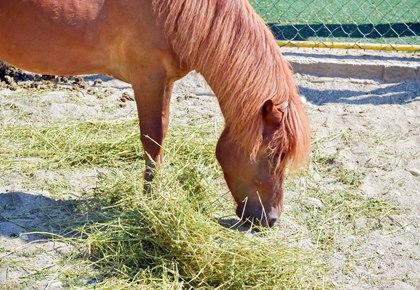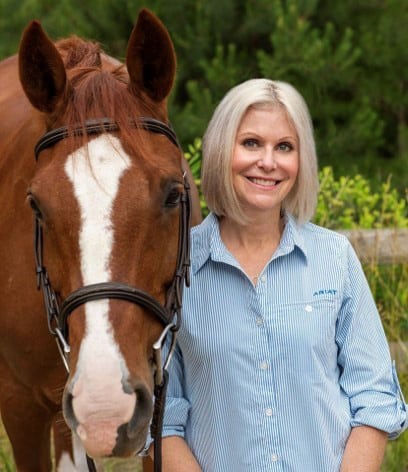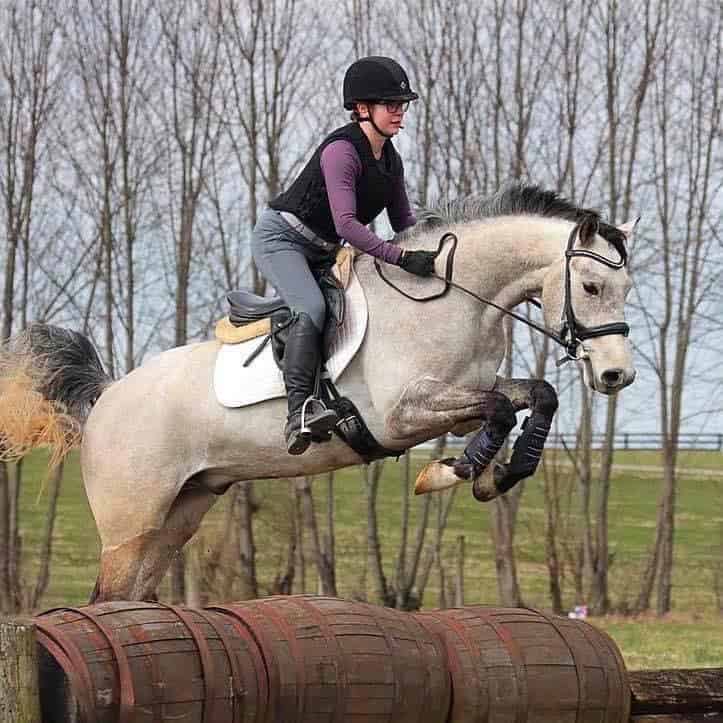How Can I Ensure My Boarded Senior Horse Is Fed Properly?

Confirm that the boarding facility is set up to manage your nutritionally challenged senior horse. Some senior horses might need a drylot, while others need access to several meals a day. If your horse can’t eat hay, make sure the facility staff can feed him accordingly. Additionally, post clear reminders on your horse’s stall or in the feed room to ensure he’s getting what he needs.
This podcast is an excerpt of our Ask The Horse Live podcast, “Feeding Senior Horses.” Listen to the full recording here.
About the Experts:
Kelly R. Vineyard

Kelly Vineyard, MS, PhD, is a Senior Nutritionist, Equine Technical Solutions, with Purina Animal Nutrition. She is responsible for providing expert technical nutrition advice and insights in a variety of areas, including veterinarian and customer nutrition consultation, new product innovation and research, sales and dealer training, and social media activity. Since 2008, Vineyard has been directly involved in the research and development for numerous Purina Horse Feed products and supplements, including the recently patented Purina Equine Senior and Senior Active ActivAge technology. Vineyard earned her BS in Animal and Dairy Sciences from Auburn University and her MS and PhD in Animal Sciences with a focus on Equine Nutrition from the University of Florida. Her doctorate research focused on the effects of omega-3 fatty acid supplementation on immune function in horses, and she received the Innovative Research award from the American Society of Animal Science for this work. Vineyard is a frequent publisher and lecturer on equine nutrition with expertise in omega-3 fatty acids, immune function, and performance horse nutrition. Her published work includes articles in the Journal of Animal Science and the Journal of Equine Veterinary Science and a chapter in the textbook Equine Applied and Clinical Nutrition. She has been involved with horses for most of her life and is a USDF bronze and silver medalist in dressage, earning both with her off-track Thoroughbred, The Roman Knows.
Shannon Pratt-Phillips
 Shannon Pratt-Phillips, PhD, received her Master of Science from the University of Kentucky and her Doctor of Philosophy from the University of Guelph, focusing on equine nutrition and exercise physiology. Pratt-Phillips joined the faculty at North Carolina State University in 2006, where she currently teaches equine nutrition in the Department of Animal Science. She is the director of the Distance Education Animal Science Programs, which includes the Master of Animal Science program, and her field of research focuses on glucose metabolism, insulin resistance, obesity, and laminitis prevention and management in horses.
Shannon Pratt-Phillips, PhD, received her Master of Science from the University of Kentucky and her Doctor of Philosophy from the University of Guelph, focusing on equine nutrition and exercise physiology. Pratt-Phillips joined the faculty at North Carolina State University in 2006, where she currently teaches equine nutrition in the Department of Animal Science. She is the director of the Distance Education Animal Science Programs, which includes the Master of Animal Science program, and her field of research focuses on glucose metabolism, insulin resistance, obesity, and laminitis prevention and management in horses.

Written by:
Shoshana Rudski
Related Articles
Stay on top of the most recent Horse Health news with















